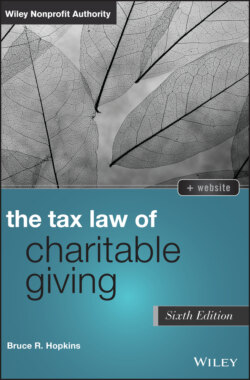Читать книгу The Tax Law of Charitable Giving - Bruce Hopkins R., Bruce R. Hopkins, David Middlebrook - Страница 82
§ 4.1 OVERVIEW OF LAW
ОглавлениеThe matter of the timing of a federal income tax charitable contribution deduction concerns the tax year for which the gift is deductible. To determine this year, the federal tax law follows the concept of title; that is, the contribution is for the year in which title to the item that is the subject of the gift passes from the donor to the donee. Title to property generally passes when all of the rights to and interests in the property have been properly transferred.
The element that is critical to the passage of title in an item of property is delivery, for delivery is the way title in property is actually transferred from one person to another.5 Consequently, a charitable contribution deduction generally comes into being on the date the gift property is delivered by the donor to the charitable donee.6 This general rule assumes a number of elements, including:
The absence of a condition (to occur either before or after the transfer) that defeats, or will defeat, the clear passage of title to the donee,7 unless:The condition is so remote as to be negligible,8 orThe condition is one that entails a legitimate restriction on the donee's use of the gift property (such as a confining of the use of the gift for scholarship purposes or for the acquisition of a building for use by the charitable donee in its charitable activities).
Compliance with the substantiation requirements.9
When the mails are used, the United States Postal Service is considered the agent of the recipient. Thus, when a contribution is mailed, the date of gift is usually the date the item is placed in the U.S. mail system.
The concept of delivery, however, does not necessarily mean that the donee must take actual physical possession of the property before a gift of the property becomes deductible. Title may pass when the charitable donee has the right or entitlement to possession of the property. One court wrote that the “donee simply must have the right to interrupt the donor's possession and the right to have physical possession of the property during each year following the donation.”10 This can involve forms of constructive delivery, but the donor must give up custody, control, and management of the property; otherwise, the gift transaction is not “complete.”11
